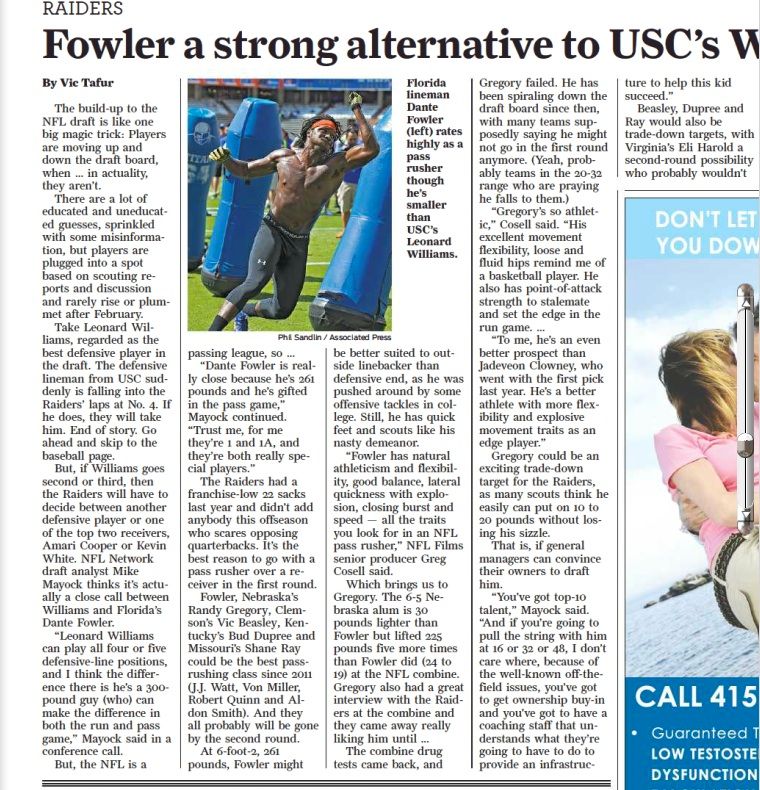By every account Nebraska pass rusher Randy Gregory is an NFL talent, and based on football skills alone, deserves to go early in tomorrow’s first round. But reports citing multiple scouts and team executives indicate he’s rapidly sliding down draft boards, with some teams prepared to pass on him altogether. The strange part is that no one will say exactly why.
Gregory has failed a few tests for marijuana, most recently at the combine. He’s also slightly undersized to play defensive end, which is where he likely projects (he did play a lot of linebacker in college). But apparently, there’s more than that.
Today comes a very odd report from NFL.com on Gregory, and on teams worries about what they might get from him. Pay very close attention to the wording throughout, because it’s maddeningly nonspecific and just begging you to read between the lines.
What is this “off-the-field stuff” that could torpedo Gregory’s NFL career? Why do scouts and the NFL.com reporters repeatedly go out of their way to emphasize that these problems are “no fault of his own?”
Mike Florio’s baffled, and damned if this report—and others referring to Gregory’s
“other issues”—isn’t specifically obfuscating the actual issue at hand.
The caution may stem from potential medical privacy issues, as well as workplace discrimination laws.
There are rumors, confined to
social media and
message boards,
that Gregory may suffer from depression and/or anxiety. (He himself
has said he first started smoking marijuana to deal with anxiety, though it’s not clear if he was using the term in its clinical sense.)
It’s not clear whether the teams are reacting to the rumors, or whether they’re acting on information that’s behind the rumors, but it would absolutely explain this weird pre-draft farrago. As much as the players have collectively bargained away medical privacy, no team or reporter would want to speak publicly about a kid’s mental health status—or admit that they’d deny him employment because of it. At the same time, it would be a very real concern for teams gambling a first-round pick. Just ask the Houston Rockets, who took Royce White 16th overall, knowing his struggles with obsessive-compulsive disorder and anxiety disorder, and never got a single game from him.
If there’s truth to this, it’s telling that the NFL doesn’t have the vocabulary to differentiate mental health from “mental toughness.” It’s a cold business, and anything that gets in the way of an athlete’s ability to stay on the field will necessarily take precedence.

